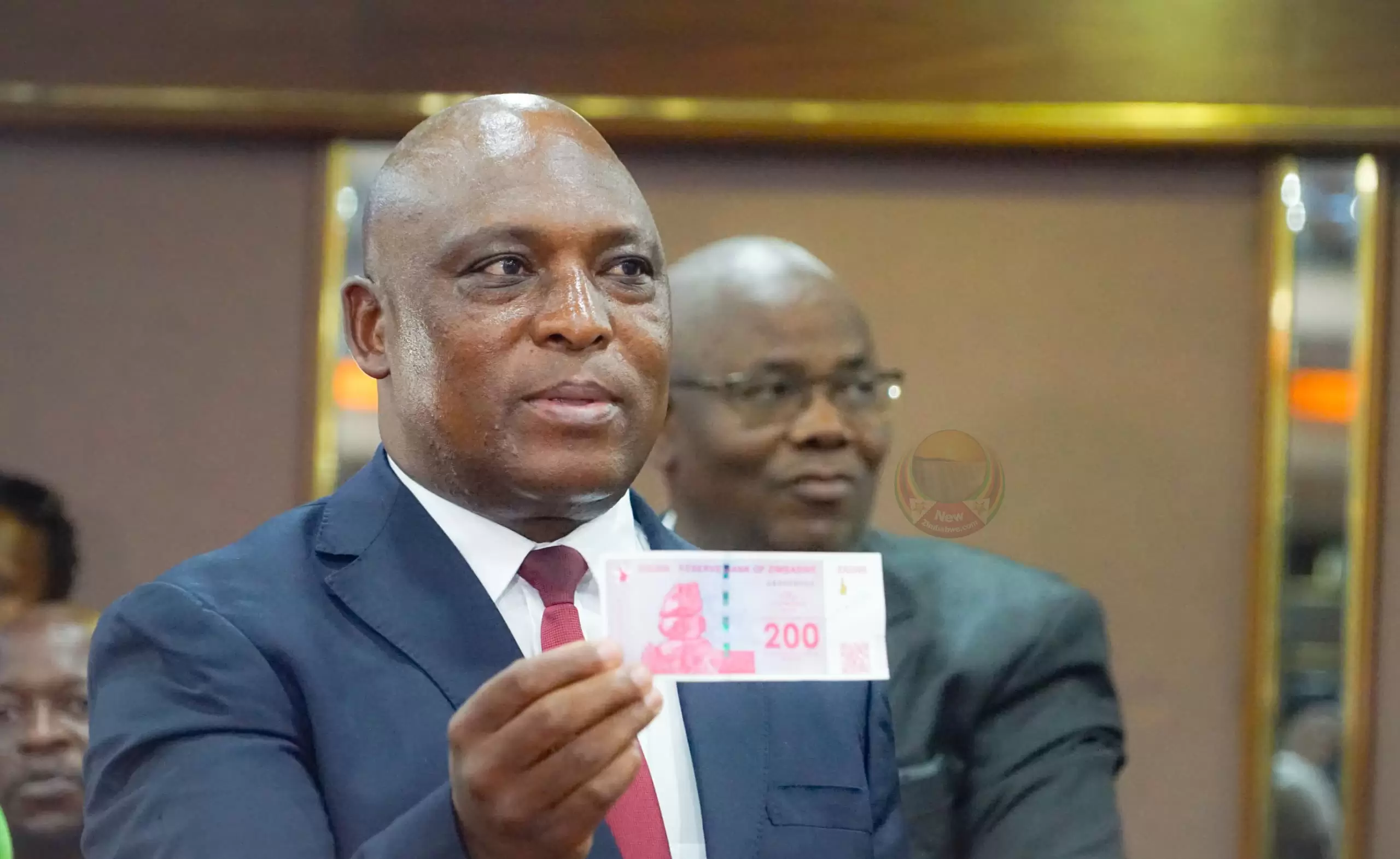Xinhua
Zimbabwe’s central bank has moved to avert a shortage of the country’s newly introduced currency, the Zimbabwe Gold (ZiG), amid concerns that the shortage is hampering people’s daily transactions.
The southern African country launched the gold-backed ZiG on April 5 in hopes of curbing inflation and promoting currency stability.
In a press release on Wednesday, Reserve Bank of Zimbabwe (RBZ) Governor John Mushayavanhu said the bank has entered into an arrangement with its financial services arm, Homelink, to enable the transacting public to swipe for the local currency in denominations of ZiG1, ZiG2, ZiG5, and ZiG10.
The small denominations are meant to provide the transacting public with change while the central bank holds on to the ZiG20, ZiG50, ZiG100, and ZiG200 notes as it seeks to choke the parallel market and stem inflation.
People queue to withdraw new currency Zimbabwe Gold outside a bank in Harare, Zimbabwe, on April 30, 2024. (Photo by Shaun Jusa/Xinhua)
Figures released by the Zimbabwe National Statistics Agency on May 29 showed that consumer prices have fallen by 2.4 percent from April. The decline followed ZiG’s launch on April 5 as part of measures to foster exchange rate stability and tame inflation.
Mushayavanhu said the RBZ is committed to ensuring sufficient local currency circulation to support normal business transactions and economic activity.
“The bank appeals to all individuals, commuters, public transport operators, retailers, informal traders and their associations, vendor associations, and other key stakeholders which interface with the transacting public, to approach their nearest Homelink branch and swipe for ZiG cash using their local currency debit or credit cards with effect from June 10,” he said.
He added that foreign currency could also be exchanged for ZiG at the same Homelink branches.
“The arrangement with Homelink is part of wider initiatives by the bank to ensure the availability of adequate ZiG cash in the economy. Going forward, the initiative will be expanded to other bureaux de change,” Mushayavanhu added.
